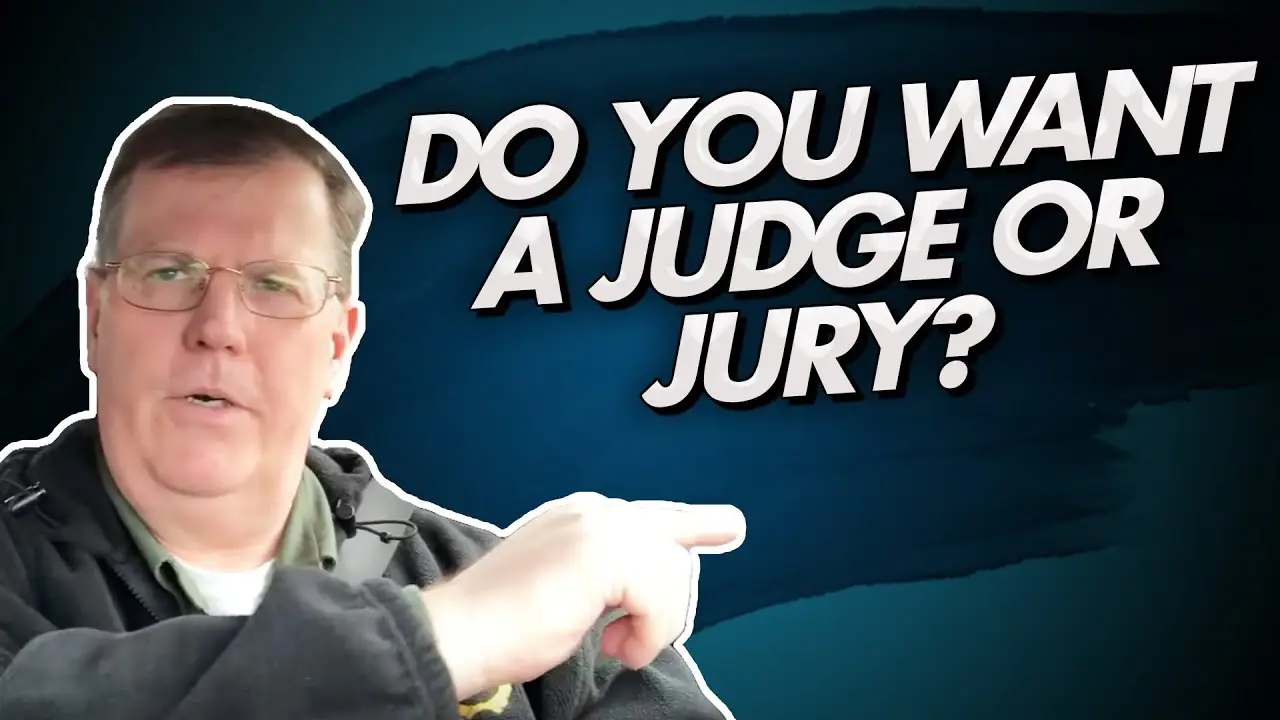
You’re going to trial. Do you want a judge or a jury to decide your case?
I’m Northern Virginia Criminal Defense Attorney, Scott Nolan, and today, I’d like to talk about Judge versus Jury.
You may not have a choice
The first thing to know is that you may not have a choice. In Virginia, if either the defendant or the prosecution demands a jury, then the trial will be by jury. So even in some cases where you would prefer to avoid a jury, you might wind up with one.
When a judge would be better
In most cases, though, you’re going to prefer a judge trial over a jury trial. This is particularly true if you’re representing yourself. Self-represented defendants are required to obey the exact same laws as lawyers are. In other words, you need to know what you’re doing; and, if you’re not a lawyer, that can be difficult at times. You need to know how to request a jury, how to question a jury, how to impanel a jury, and how to select a jury.
A rule of thumb
So how do you decide between a judge and a jury? There is no hard and fast rule. Many lawyers, including myself, follow a rule of thumb that says if your case has an emotional component to it, you want a jury. If it is a technical case, you want a judge. That is, if there’s an element of the case that might be more about perception and feelings than it is about the law, many lawyers will agree that a jury is better.
An example might be where you committed a crime, but most people would agree that it wasn’t a bad thing under the circumstances. That’s obviously pretty rare, but that’s a good time to have a jury decide on your case as you can see on my other post about jury nullification.
Then again, it might also simply be a matter of not being guilty, but the reasons you aren’t guilty are all about your intent. And if your intent is something that was emotional, or if your intent is something that is going to either appeal to or shock a jury, then it’s probably something you want a jury to decide.
Another reason to favor a jury trial
For my own purposes, I also think that juries simply have better bullshit detectors than judges. Not because judges are bad but because judges hear the same kind of evidence over and over again. And they may be inclined, in some cases, to conflate your case with a similar case they heard last week or last month. And that may flatten out any emotional aspect of the case.
Because of that, I think you’re simply better off with a jury. Also, a jury is composed of twelve people or seven, in the case of a misdemeanor appeal. And I generally think that the life experiences of seven or twelve people are going to be more informative about you, the average citizen, than will the life experience of someone who, after all, is a lawyer and spent much, if not most, of their time in court.
When a judge may be better
On the other hand, your case may be a technical one, i.e., “Judge, I am not guilty because they violated my Fourth Amendment rights or I am guilty but this was a matter of necessity, this was a matter of duress.” You have a technical defense.
And I don’t think juries care that much about technicalities. If this is a case where you should be found not guilty for some technical or legal reason, then you don’t want the emotions of a jury involved. You probably do want a cool-headed judge to be looking at this.
When there are two stories
That certainly is the rule of thumb that one will hear from many lawyers and for the most part I tend to agree with it. The only place that I disagree with that rule of thumb is when it comes down to this: There are two stories and they’re both equally good – yours and the prosecutions.
In theory, ties should go to the defense but I worry that one man or one woman, the judge, is going to see that a little bit differently, and that you are probably better off with a number of people looking at that case. And so I really do think that when it comes to ties, I personally would choose a jury over a judge.
If you’d like to talk about juries versus judges or any other aspect of the law, please feel free to give me a call or contact my office. I’d be happy to talk to you.



